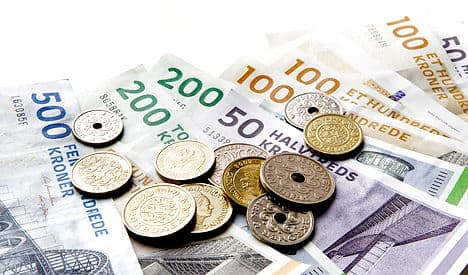Danish prices drop for first time in 60 years

Dropping oil prices cause Denmark to slip into a recession but economists stress that it is "good news for the Danish economy" and not a sign that the nation is "about to be caught in a vicious deflationary spiral".
Danish consumer prices fell in January for the first time since 1954 after energy prices collapsed, following the eurozone into negative territory while raising hopes it could boost Denmark's anaemic consumer spending. The prices of goods and services dipped 0.1 percent in January after rising 0.3 percent the month before, Statistics Denmark said. Stripping out the cost of energy and non-processed food, prices rose 0.8 percent. "It is worth underscoring that the current situation is good news for the Danish economy," Nordea economist Jan Størup Nielsen wrote in a note to investors. "As long as lower inflation is due to falling energy prices and fees it is helping to support the purchasing power of Danish households," he said. Danish consumers have reined in spending since housing prices began a protracted slide in 2007, leaving the country with one of the world's highest levels of household debt. Deflation means they have more money to spend at the end of the month, but it could also lead to consumers putting off buying big ticket items if they expect prices to fall further. However, Handelsbanken economist Jes Asmussen said the deflation was unlikely to last. "Looking at the trends in the price of services, wages, house prices and consumer expectations for inflation in Denmark, there is nothing to suggest that the Danish economy is about to be caught in a vicious deflationary spiral," he said according to business daily Børsen.
Comments
See Also
Danish consumer prices fell in January for the first time since 1954 after energy prices collapsed, following the eurozone into negative territory while raising hopes it could boost Denmark's anaemic consumer spending.
The prices of goods and services dipped 0.1 percent in January after rising 0.3 percent the month before, Statistics Denmark said.
Stripping out the cost of energy and non-processed food, prices rose 0.8 percent.
"It is worth underscoring that the current situation is good news for the Danish economy," Nordea economist Jan Størup Nielsen wrote in a note to investors.
"As long as lower inflation is due to falling energy prices and fees it is helping to support the purchasing power of Danish households," he said.
Danish consumers have reined in spending since housing prices began a protracted slide in 2007, leaving the country with one of the world's highest levels of household debt.
Deflation means they have more money to spend at the end of the month, but it could also lead to consumers putting off buying big ticket items if they expect prices to fall further.
However, Handelsbanken economist Jes Asmussen said the deflation was unlikely to last.
"Looking at the trends in the price of services, wages, house prices and consumer expectations for inflation in Denmark, there is nothing to suggest that the Danish economy is about to be caught in a vicious deflationary spiral," he said according to business daily Børsen.
Join the conversation in our comments section below. Share your own views and experience and if you have a question or suggestion for our journalists then email us at [email protected].
Please keep comments civil, constructive and on topic – and make sure to read our terms of use before getting involved.
Please log in here to leave a comment.